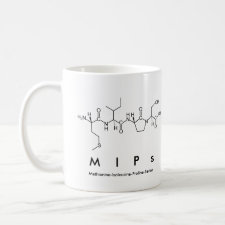
Authors: Kirchner R, Seidel J, Wolf G, Wulff G
Article Title: Calorimetric investigation of chiral recognition processes in a molecularly imprinted polymer.
Publication date: 2002
Journal: Journal of Inclusion Phenomena and Macrocyclic Chemistry
Volume: 43
Issue: (3-4)
Page numbers: 279-283.
DOI: 10.1023/A:1021243826862
Abstract: The molecular imprinting of polymers is a promising concept for designing highly selective receptor systems which is now fairly well understood from a structural point of view. However, only limited information is available on the thermodynamics of enantioselective recognition in imprints. In order to study this problem, the interactions of a pair of enantiomers (phenyl-alpha- L- and phenyl-alpha- D-mannopyranoside) with a well-characterized imprinted polymer (D-enantiomer acted as template) have been investigated by means of isothermal batch and titration calorimetry. Batch calorimetric measurements with unstirred samples are affected by strong solvent-polymer interactions, such as swelling, causing large changes of the blank effects over long periods of time. Isothermal titration calorimetric measurements proved to be more efficient for studying imprinted polymers. The enthalpies of rebinding for both enantiomers strongly decrease with increasing degree of occupation of the available cavities. Only at low degrees of occupation (< 50%) was a significantly higher endothermic heat effect for the (D)-enantiomer (template) detected which indicates an enantioselective rebinding. The overall heats of rebinding were found to be endothermic and are composed of several different contributions that are discussed. In summary, the reported calorimetric results are generally in accordance with the proposed mechanism of chiral recognition in this type of molecular imprinted polymers



Join the Society for Molecular Imprinting

New items RSS feed
Sign-up for e-mail updates:
Choose between receiving an occasional newsletter or more frequent e-mail alerts.
Click here to go to the sign-up page.
Is your name elemental or peptidic? Enter your name and find out by clicking either of the buttons below!
Other products you may like:
 MIPdatabase
MIPdatabase









